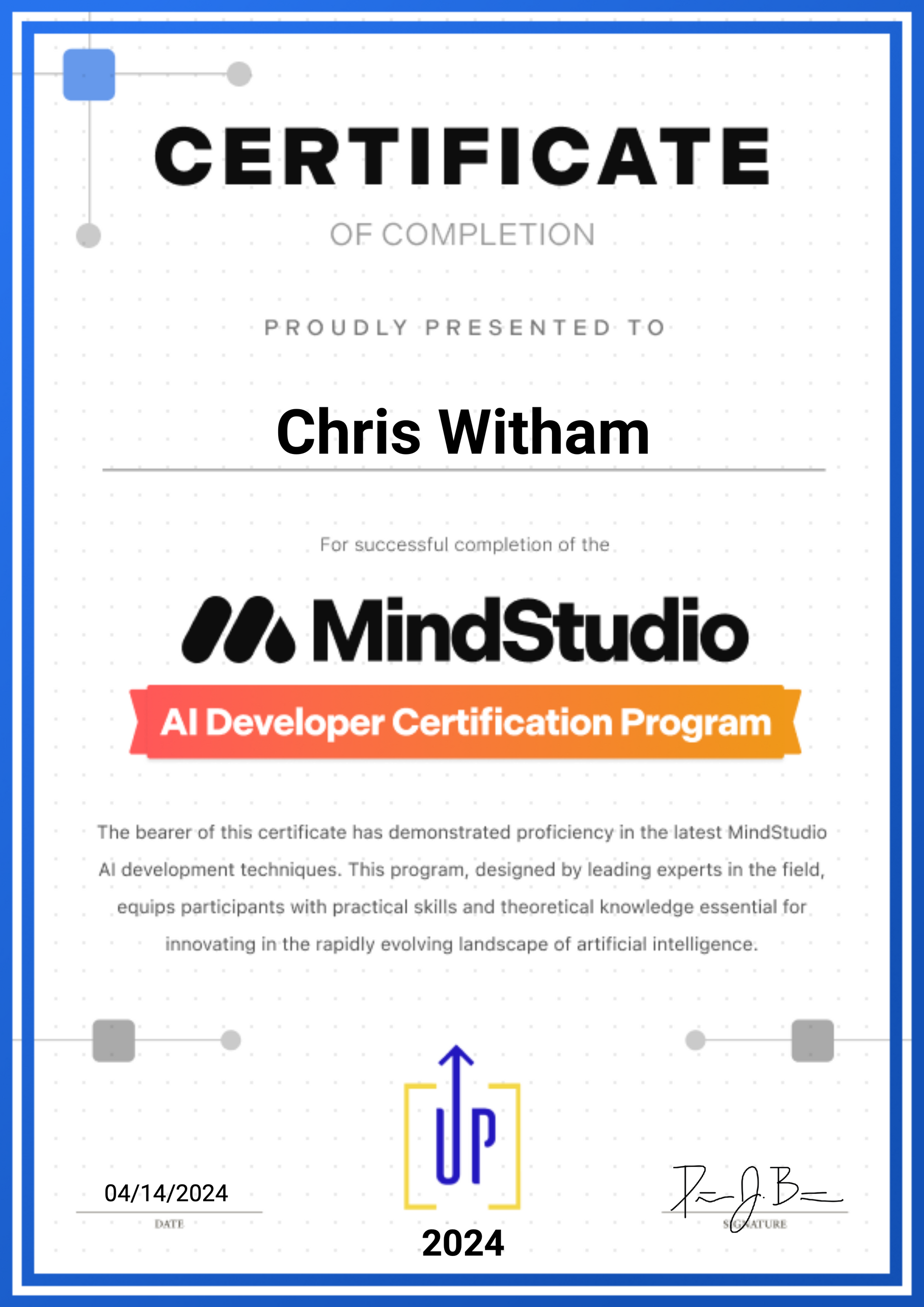Have questions? Contact Chris today for a chat about how we can help you
AI for Breakfast
Post 98 - Trade Tuesday
Empowering Accountancy with Artificial Intelligence
In the world of accountancy, where precision and efficiency are paramount, Artificial Intelligence (AI) is becoming a very useful asset. As businesses grapple with increasingly complex financial landscapes, AI offers accountants a powerful tool to enhance accuracy, streamline operations, and provide higher value strategic advice to clients. Here’s a closer look at how AI can revolutionise the accountancy sector.
Automating routine tasks
One of the most immediate benefits of AI in accountancy is the automation of repetitive, time-consuming tasks such as data entry, reconciliation, and basic calculations. AI-driven software can process data at unprecedented speeds and with greater accuracy than humanly possible. This not only reduces the likelihood of errors but also frees up accountants to focus on more complex, value-added activities.
Enhanced fraud detection
Fraud detection is a critical area where AI can make a significant impact. By analysing patterns in large datasets, AI can identify anomalies that may indicate fraudulent activity. This capability extends beyond simple rule-based systems; AI can learn and adapt to new fraudulent techniques, making it an ever-evolving tool in the fight against financial crime.
Predictive analytics
AI excels in its ability to forecast future trends based on historical data. In accountancy, this capability can be harnessed to provide clients with insights about potential financial scenarios and outcomes. Whether it’s projecting cash flow needs, assessing risk, or planning investments, AI-driven predictive analytics can help accountants offer proactive advice and strategic planning.
Client interaction and personalisation
AI can also transform how accountants interact with their clients. Chatbots and virtual assistants can handle routine inquiries and provide clients with instant responses. More advanced AI systems can analyse client data to tailor advice and identify opportunities, enhancing personalised service and improving client satisfaction.
Challenges and considerations
While the benefits are compelling, integrating AI into accountancy practices comes with challenges. There’s the initial investment in technology and training, along with ongoing costs associated with data security and system maintenance. Moreover, there is the need to balance technology with the human element, ensuring that AI complements rather than replaces the personal touch that clients value.
The future is now
For accountants willing to embrace AI, the potential rewards are significant. Not only can AI improve operational efficiency and accuracy, but it also opens new avenues for offering strategic, data-driven advice. As AI technology continues to evolve, its integration into accountancy practices is not just about keeping up with the competition—it’s about staying ahead of it.
By adopting AI, accountants can ensure they remain indispensable advisers in an increasingly automated world, providing strategic insights that machines alone cannot.
To find out more about how a custom AI app may be able to help your accountancy practice please get in touch.
LucidSynergy Ltd.,
7 Forbes Business Centre
Kempson Way
Bury St Edmunds
Suffolk
IP32 7AR
Occasional Newsletters
We will get back to you as soon as possible
Please try again later
© 2025 LucidSynergy Ltd. Registered in England and Wales No.7080913.








